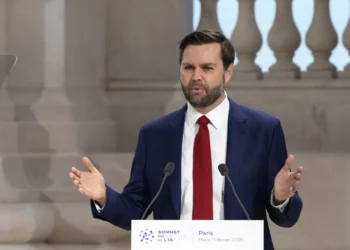The International Monetary Fund (IMF) has recently disclosed that Ghana’s financial sector stability has been maintained despite the challenges posed by the Domestic Debt Exchange Programme (DDEP).
However, this stability has come with a notable decline in credit growth and a rise in non-performing loans (NPLs). In its Second Review of Ghana’s Extended Credit Facility Programme, the IMF highlighted that despite facing significant capital shortfalls due to the implementation of the DDEP, bank balance sheets in Ghana showed rapid improvement in 2023.
This recovery was attributed to high profitability and substantial capital injections. The Government of Ghana has actively supported the recapitalization of state-owned banks, injecting GHS4.6 billion through the Ghana Financial Stability Fund (GFSF) by April 2024. This financial support played a crucial role in stabilizing the sector.
The IMF report noted that banks in Ghana posted robust profits in the previous year, driven by rapid deposit growth and higher interest margins. The nominal year-on-year deposit growth rate reached an impressive 43% by the end of 2023. Banks’ large holdings of T-bills and open-market-operation bills further contributed to their profitability. This profitability, alongside the government’s recapitalization efforts, has fortified the financial sector, ensuring its stability amidst broader economic challenges.
Challenges in Credit Growth and Non-Performing Loans
Despite the sector’s overall stability, the IMF report raised concerns about the decline in credit growth. The nominal growth rate in private sector credit was significantly below inflation, standing at just 11.0% in 2023. This sluggish credit growth indicates that businesses and individuals faced difficulties in accessing necessary funding, which could impede broader economic growth.
Moreover, the ratio of non-performing loans increased sharply from 14.8% in December 2022 to 20.6%. This rise in NPLs signifies deteriorating loan quality, posing a risk to financial stability and potentially leading to tighter credit conditions. The increasing NPLs reflect the economic strain on borrowers and the challenges they face in meeting their debt obligations.
The IMF report also underscored that Ghana remains in debt distress, with its debt assessed as unsustainable. The Debt Sustainability Analysis (DSA) continues to show significant breaches of standard thresholds, reflecting the severe debt burden on the country. Following the debt service suspension announced in December 2022, the government accumulated arrears to official bilateral and private external creditors while remaining current on the newly exchanged domestic debt and multilateral debt.
The ongoing discussions with creditors are crucial for resolving these debt sustainability issues. Until these discussions conclude and a comprehensive debt restructuring is achieved, Ghana’s fiscal situation remains precarious. The government’s reliance on T-bills to meet domestic financing needs, issuing them at nominal interest rates slightly above inflation, highlights the challenges in securing sustainable long-term financing.
Outlook and Way Forward
The IMF’s findings indicate a mixed outlook for Ghana’s financial sector. While stability has been maintained and profitability remains strong, the decline in credit growth and the increase in non-performing loans pose significant challenges. Addressing these issues requires continued government support, effective debt restructuring, and policies aimed at stimulating credit growth while managing the quality of loan portfolios.
Furthermore, sustainable economic growth hinges on resolving the debt distress situation. Comprehensive debt restructuring, effective fiscal management, and fostering a conducive environment for private sector growth are essential steps towards long-term financial stability and economic prosperity in Ghana.
While Ghana’s financial sector has shown resilience amidst the DDEP, the decline in credit growth and rising NPLs underlines the need for continued vigilance and proactive measures to ensure sustained financial stability and economic recovery.
READ ALSO: Tullow and Local Banks Unite to Enhance Financing for Ghanaian Suppliers



















